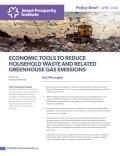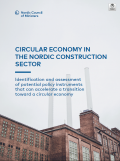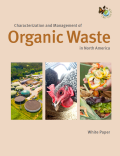
Reducing and diverting waste can be an important step in GHG mitigation and Canada’s overall climate change approach. Economic Tools to Reduce Household Waste and Related Greenhouse Gas Emissions focuses on economic policy tools to encourage waste prevention and diversion at the final consumer stage.

The Nordic Council of Ministers has published a report on potential policy instruments that can accelerate a transition toward a circular economy in the Nordic construction sector. Most of the policy instruments identified focus on rules and regulation, particularly on the content and quality of building materials and demolition plans.

The white paper Characterization and Management of Organic Waste in North America identifies challenges, opportunities and solutions related to increasing organic waste diversion and processing capacity in North America, with a focus on how to address challenges and opportunities in Canada, Mexico, and the United States, and identifies potential areas for regional cooperation.

The study Green Economy Fiscal Policy Analysis: Mauritius identifies areas with potential for improvement through the rationalization of current fiscal measures and the mobilization of further resources for innovation and investment.

This policy brief is the first in a series on the circular economy and Canada. It provides an introduction to the circular economy concepts and landscape, geared towards for both government and business audiences.
